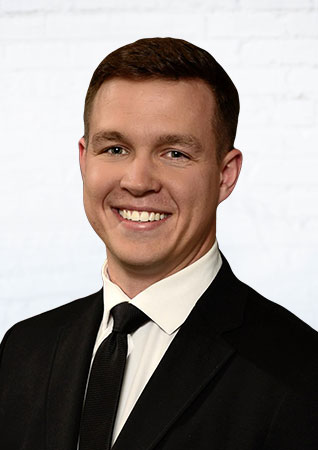Norfolk Premises Liability Lawyer
In Virginia, premises liability law ensures that property owners are responsible for injuries caused by negligence. So, if you’ve been hurt in a slip and fall, suffered due to inadequate security, or encountered any hazard on someone else’s property, it’s essential to know your rights.
At Tronfeld West & Durrett, we focus on supporting individuals through all the legal aspects related to premises liability. Our team of seasoned attorneys has over five decades of experience helping victims in personal injury cases in Virginia, and we work to ensure those harmed receive the compensation they’re entitled to in order to cover all the injuries caused by the accident.
Premises Liability Attorneys: Holding Property Owners Accountable in Norfolk
In Norfolk, property owners have a legal obligation to ensure their premises are safe for visitors. When owners fail to meet this standard and it leads to accidents and injuries, it’s considered a case of negligence.
Personal injury attorneys play a pivotal role in these cases by meticulously investigating the circumstances of the accident. The process involves gathering concrete evidence, witness statements, and expert testimonies to establish a clear link between the property owner’s negligence and the injury sustained.
Our team of personal injury lawyers in Norfolk uses this process to build a strong argument that holds negligent property owners accountable and allows you to get compensated for your injuries. We’ll also work closely with you to understand the full impact of the injury on your life, ensuring all aspects are accounted for in the claim.
For answers to your questions about a premises liability in Norfolk, call:800-321-6741
Common Types of Premises Liability Cases
Premises liability cases can vary widely, but some common types include:
- Slip and fall accidents
- Inadequate building security leading to injury or assault
- Swimming pool accidents
- Dog bites and animal attacks
- Exposure to toxic substances or hazardous conditions
Each of these cases demands a tailored legal approach that focuses on the specific circumstances and types of negligence involved. This is crucial for building a strong case and effectively advocating for the injured party’s rights.
Negligence Causes
All of the previous examples can be negligence causes in premises liability cases. There is negligence when the accidents are caused by the failure of the property owner to maintain a safe environment for visitors.
Other negligence causes include wet floors without warning signs, poorly lit stairwells, unsecured rugs or carpets, and other hazardous conditions that lead to accidents and injuries. Proving negligence is essential if you want to pursue legal action to get compensation for your injuries and damages.
Here, understanding what causes are considered negligent in premises liability law is crucial to building a strong legal strategy that supports your claim. A lawyer can assess if you indeed have a viable case.
Damages You Can Recover After a Premises-Related Injury
Victims of premises-related injuries may face significant physical, emotional, and financial challenges. But Virginia’s law allows for the recovery of various types of damages in these cases, including:
Medical Expenses and Rehabilitation Costs
Injuries sustained in a premises liability case can result in substantial medical expenses and the need for long-term rehabilitation. In Norfolk, you’re entitled to seek compensation for these costs, receiving the necessary care without financial strain.
Emotional Distress and Pain and Suffering
In addition to physical injuries, you can also endure intangible damages, such as emotional distress or pain and suffering. These non-economic damages are also an important aspect of premises liability claims, acknowledging the non-economic damages incurred by the victim.
Click to contact us today
What Is the Time Limit You Have to File a Premises Liability Claim?
If you’ve been injured on someone else’s property in Norfolk, it is crucial to act quickly. In Virginia, you generally have two years from the date of the injury to file a premises liability claim, as stipulated by the Virginia Code § 8.01-243. This statute of limitations means that if you fail to file a claim within this period, you may lose your right to seek compensation for your injuries.
It’s important to consult with a knowledgeable premises liability attorney as soon as possible to ensure all legal deadlines are met and your case is handled properly from the outset. Waiting too long can result in lost evidence, faded memories, and reduced chances of recovering the compensation you deserve.
Complete a Free Case Evaluation form now
What Are Your Legal Options After a Premises-Related Injury
After suffering an injury on someone else’s property, you have several legal options. However, no matter what legal action you choose to take, it’s important to act promptly due to the statute of limitations in Virginia. This sets a deadline for filing a lawsuit, which is generally two years from the date of the incident.
Filing a Premises Liability Lawsuit
To file a premises liability lawsuit, it’s essential to demonstrate the property owner’s negligence and the extent of the injuries and losses incurred. Overall, this process involves gathering evidence, such as incident reports and witness statements, and presenting a compelling case to show how the property owner’s actions or inactions directly led to the injury.
Settlement Negotiations and Mediation
Settlement negotiations and mediation are alternative dispute resolution methods often used in premises liability cases. These approaches involve discussions between the injured party and the property owner (or their insurance company) to reach a mutually agreeable compensation amount, potentially avoiding the need for a trial.
The Process of Pursuing a Premises Liability Claim
The process of pursuing a claim involves several key steps:
Step 1: Case Evaluation and Consultation
The process begins with a comprehensive evaluation of your case. An attorney will discuss the incident, your injuries, and their impact on your life. This step is essential for determining the viability of your claim and planning the legal strategy to pursue moving forward.
Step 2: Investigation and Gathering Evidence
In this phase, your attorney will conduct a thorough investigation of the incident. This includes collecting accident reports, medical records, witness statements, and other relevant documentation. The goal is to compile a strong body of evidence to establish the property owner’s negligence and liability.
Step 3: Negotiation and Litigation
The final step involves skillful negotiation with the opposing party to secure a fair settlement. If negotiations are unsuccessful, however, the case may proceed to litigation. Here, your attorney will represent your interests in court, advocating for the compensation you deserve based on the evidence and legal arguments presented.
Virginia Premises Liability Law
Premises liability law in Virginia is based on the principle that property owners have a duty to maintain their premises in a reasonably safe condition to prevent harm to visitors. The level of care owed to a visitor depends on their classification, such as invitee, licensee, or trespasser. Understanding these distinctions is key to building a strong premises liability case.
Duty of Care
Property owners in Virginia are legally required to exercise a reasonable degree of care to ensure their premises are safe for visitors. The extent of this duty depends on the nature of the visit and the visitor’s status:
- Invitees: These are individuals invited onto the property for the benefit of both the owner and the visitor, such as customers in a store. Owners owe the highest duty of care to invitees and must regularly inspect and maintain the premises to ensure safety.
- Licensees: Licensees are visitors who enter the property for their own purpose or benefit, like social guests. Property owners must warn licensees of known dangers that are not obvious but are not required to inspect for hidden dangers.
- Trespassers: Trespassers enter the property without permission. Property owners owe the least duty of care to trespassers but cannot intentionally harm them.
Types of Visitors
Virginia law recognizes different categories of visitors who may be on a property:
- Invitees: As mentioned, these are individuals who enter the property with the owner’s express or implied invitation for mutual benefit, such as patrons in a restaurant.
- Licensees: These are visitors present for their own purposes but with the owner’s consent, like a friend visiting a private home.
- Trespassers: Individuals who enter without the owner’s consent or legal right. Although property owners owe minimal duty to trespassers, there are exceptions, such as the “attractive nuisance doctrine,” which may apply to children.
Proving Premises Liability
Successfully proving a premises liability claim in Virginia requires more than simply showing that an accident occurred. The law places the burden on the injured party to establish specific elements that demonstrate the property owner’s negligence led to the injury.
Here’s a breakdown of the key elements required to prove your case:
- Existence of a Duty of Care: The first step is to show that the property owner or occupier owed you a duty of care. This duty varies based on your status on the property — whether you were an invitee, licensee, or trespasser. For example, business owners have a heightened duty to ensure their premises are safe for customers, while homeowners have a lesser duty to social guests.
- Breach of Duty: Once the duty of care is established, you must demonstrate that the property owner breached this duty by failing to take reasonable steps to maintain a safe environment. This breach could include neglecting to fix a known hazard, such as a broken handrail, failing to post warnings about a dangerous condition like a wet floor, or not conducting regular inspections to identify potential dangers.
- Causation: It’s not enough to prove that the property owner was negligent; you must also show that this negligence directly caused your injuries. This often requires clear and convincing evidence, such as photographs of the dangerous condition, medical reports linking the injury to the accident, and witness statements that corroborate your account of the incident. This step is critical because the defense may argue that your injuries were pre-existing or caused by another factor unrelated to the property owner’s actions.
- Damages: Finally, you must prove that you suffered actual damages as a result of the injury. This includes tangible losses like medical bills, rehabilitation costs, and lost wages, as well as non-economic damages such as pain and suffering, emotional distress, and reduced quality of life. Documenting these losses comprehensively is essential to maximizing your compensation.
Strengthening Your Premises Liability Case
Proving a premises liability claim can be an uphill battle, especially against well-funded property owners or their insurance companies. At Tronfeld West & Durrett, we meticulously analyze every aspect of your case, gather crucial evidence, and consult with industry experts to establish each element of your claim.
Our goal is to present a compelling argument that clearly demonstrates the property owner’s negligence, securing the compensation you deserve for your injuries.
Seeking Legal Help for Your Premises Liability Case in Norfolk – Choosing the Right Attorney
When navigating the complexities of a premises liability case, having a knowledgeable attorney by your side is essential. The right legal guidance can make a significant difference in the outcome of your case: in fact, an experienced lawyer can effectively advocate for your interests, ensuring all aspects of your claim are thoroughly addressed.
At Tronfeld West & Durrett, we offer tailored legal support to those injured due to property owner negligence. So, if you think you have a premises liability case in Norfolk, don’t hesitate to contact us today to schedule a free consultation with our team of personal injury attorneys.
Call or text 800-321-6741 or complete a Free Case Evaluation form







